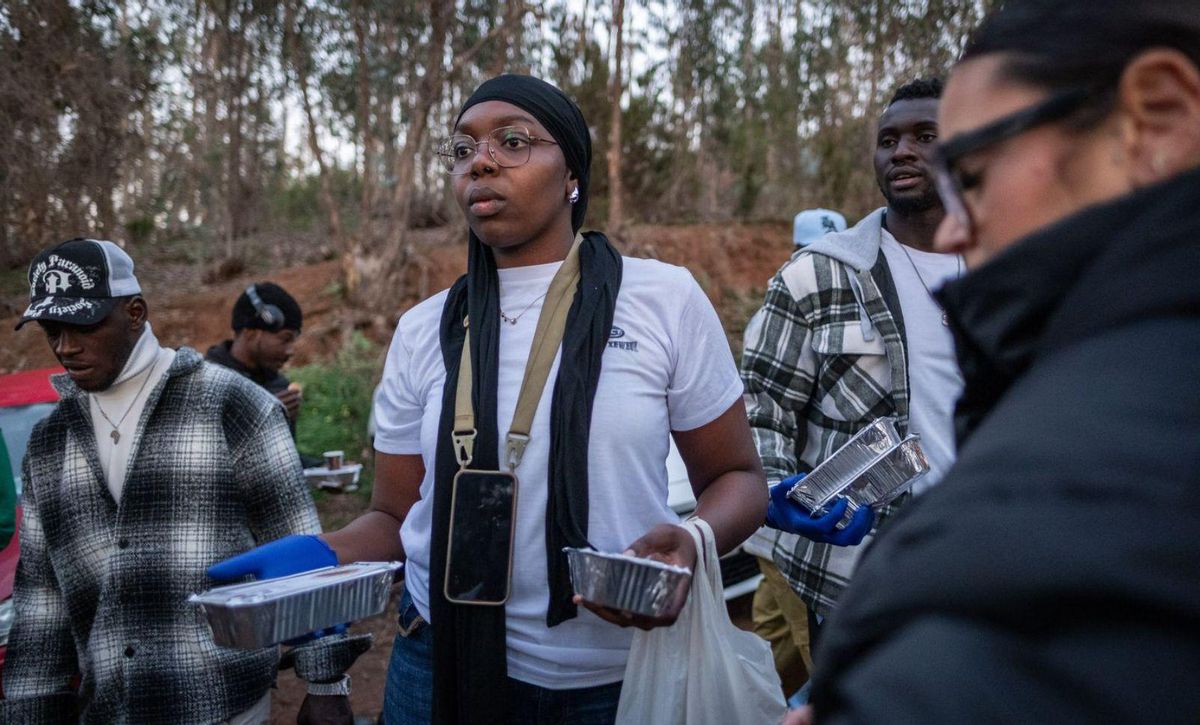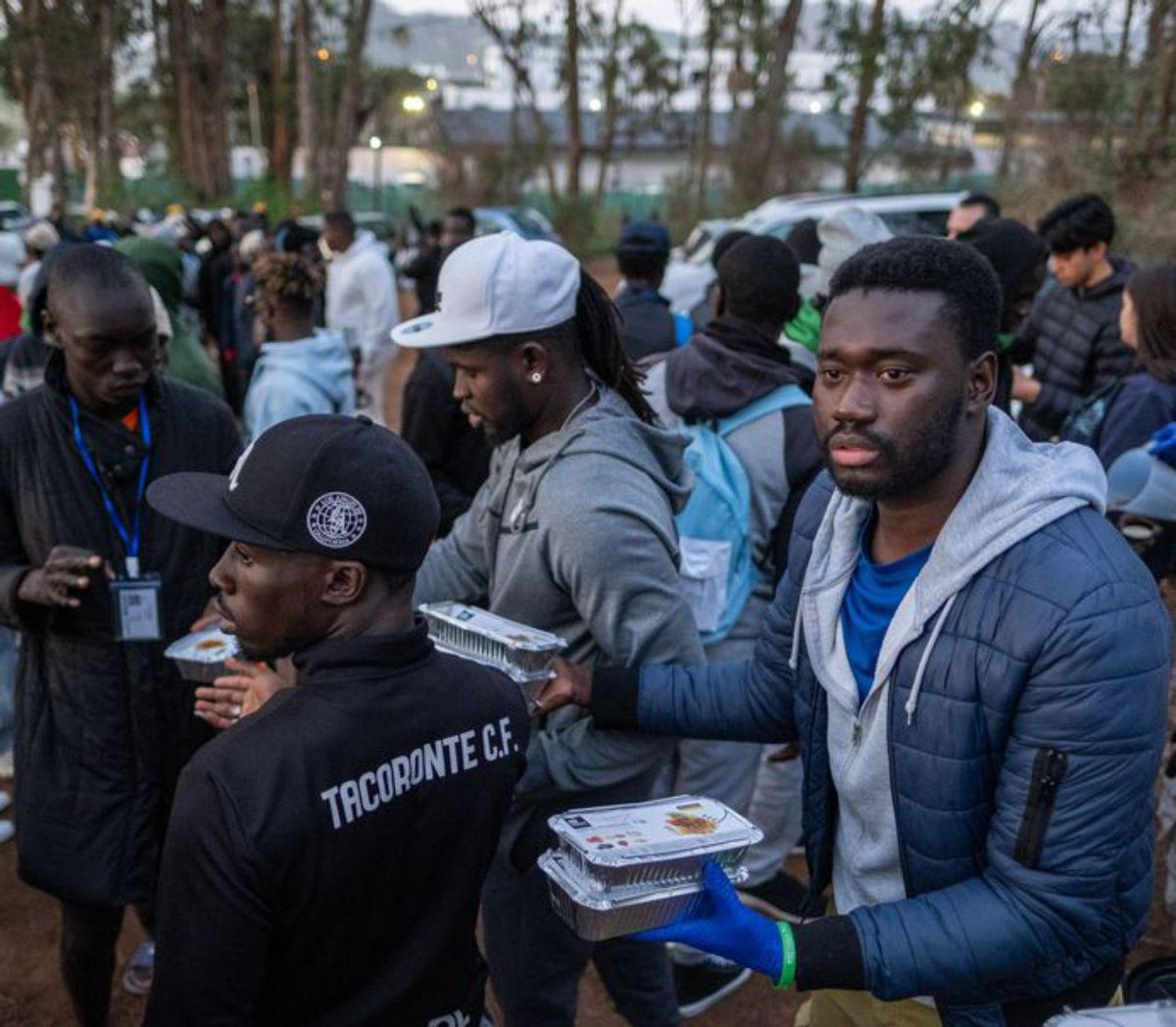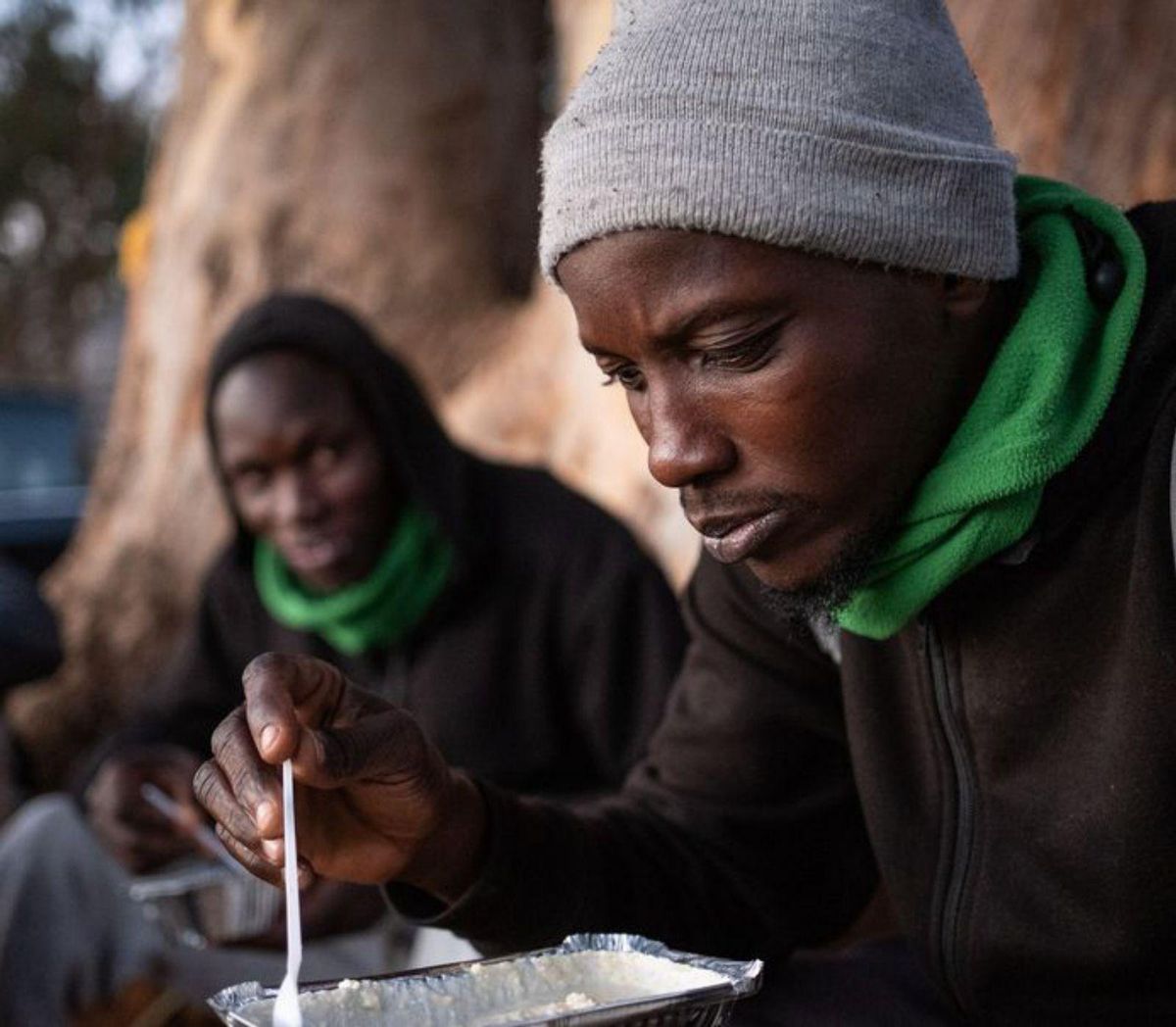Whilst standing in line amidst the eucalyptus trees, the youth sway and lift their arms. It is the typical thiante dance, the spiritual melodies from Senegal that express shared joy. The fact that many of these youngsters groove to the same beat indicates that most hail from this nation in West Africa, which is just as far from the Canary Islands by air as Madrid: two and a half hours. Tourists are drawn to this music, and it certainly captivates them. Within moments, scores of them cease their daily wandering along the route that leads to La Laguna, making their way to the spot where the thiante echoes.
This occurrence took place on December 28, yet the scene recurs regularly. These are the charitable initiatives organised by the Proyect Xeewël collective, located outside the Las Raíces migrant reception centre on the fringes of La Laguna, above the Los Rodeos airport. Established and led by Sassy Diagne Wade, a university student of Senegalese heritage from Tenerife, Xeewël – which translates to peace and well-being in Wolof, the most widely spoken indigenous language in Senegal – offers something these youths desperately require amid the damp, lagoon-like chill that seeps into their bones: human warmth.
However, they provide not only aid and a touch of happiness to temporarily set aside, at least for a while, all the uncertainty and confusion they face due to the unknown future that lies ahead. During their visits, the collective’s supporters provide guidance, discussions, food… They particularly appreciate the Senegalese dishes, especially thiakry, a dessert crafted from couscous and yogurt that is commonly enjoyed in West African nations, akin to a variation of rice pudding. For a fleeting moment, it transports them back to their homeland. And with fish, meat, rice, a serving of thiakry, and the dancing, they eventually find a moment to conquer the magua.

Dances, support and thiakry for migrants from Las Raíces | AG
The initiative began two years ago, when Sassy Diagne, now 21 and studying Labour Relations at the University of La Laguna, was compelled by the frustration she experienced seeing the weary faces of many young people arriving in the Islands by cayuco, risking their lives for a better future. “I befriended a group of Senegalese migrants and decided to establish an organisation to assist them,” shares Sassy.
She did not have to plunge into the ocean in desperation, yet she can easily empathise. Her mother, Faty Gora, and father, Cheykh Diagne, arrived in Tenerife by air in 1991, with the means to do so. Very few are as fortunate. Both engaged in trade, achieving sufficient stability to start a family. Sassy was born in Tenerife and proudly asserts that she is “more Canarian than gofio.” “In ’91, there were no canoes; everything was different. Yet now the influx of typical Senegalese fishing vessels is relentless. I realised something needed to be done for them.

Dances, support and thiakry for migrants from Las Raíces | AG
Sassy and her fellow members of Proyect estimate “I cannot ascertain how many there are at present, but I can assure you it is far more than the 1,500 that the reception centre officially accommodates; far more than during any visits we have made to Las Raíces,” notes Sassy, who recognises that 2024 has witnessed a record influx of migrants via sea and clandestine routes to the Canary Islands: 46,843, primarily hailing from West Africa, but some also from Asia. The surge in arrivals has required the organisation to work with great care to maintain order in the queues for food distribution.
American Volunteers
The solidarity association now has nearly twenty members, most of whom are Senegalese residing in Tenerife or local individuals of Senegalese descent. Some volunteers from the United States have joined as well. This includes a couple living in Miami, made up of a Tenerife man and an Indian woman, who periodically travel to the Island to lend support. “They reached out to us via social media upon witnessing our efforts and began to assist us. Naturally, they prefer to remain anonymous. “They wish for discretion.” In fact, during their recent Christmas visit, they collaborated by providing food supplies and transport.

Dances, support and thiakry for migrants from Las Raíces | ANDRES GUTIERREZ
Project Xeewël members primarily advise patience. “They are bewildered. They believe they will arrive and swiftly find work, yet the reality is far more daunting. Many confess they would never have embarked on the cayuco had they foreseen the challenges ahead,” Sassy states, clarifying. “Desperation dominates. Hence, we counsel adults that until they are sent to the Peninsula, which may take weeks or months, they must persevere.”
At least she observes them “well looked after” by the staff operating the Las Raíces reception centre. Dressed in hats and feathers, they await their turn to receive aluminium trays filled with food, a juice carton, and a portion of thiakry, a fleeting moment of joy amidst a critical phase in their lives fraught with uncertainty. They at least have the solidarity of Xeewël and other organisations.
















